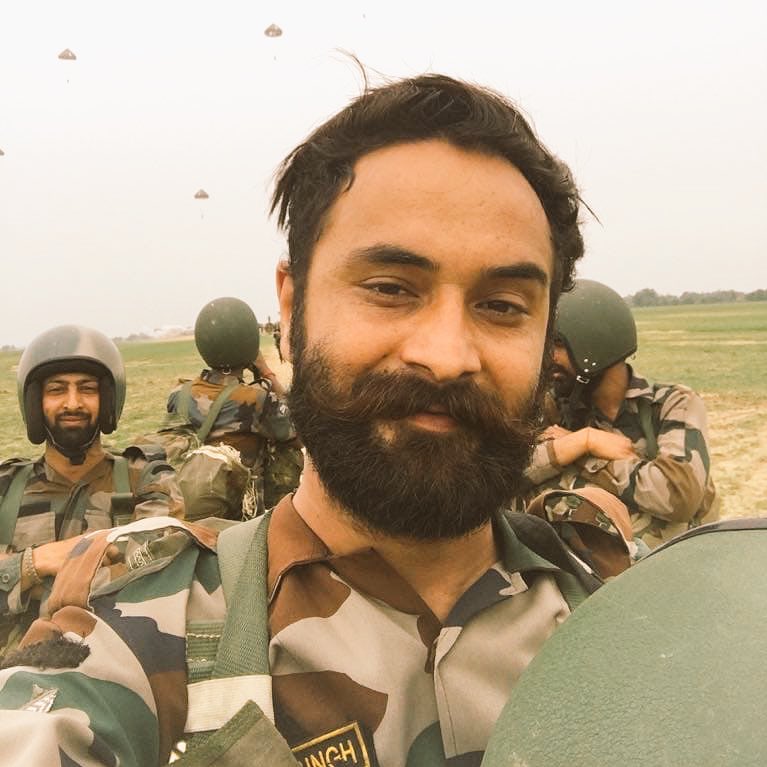
What is SSB?
The Service Selection Board (SSB), set up by the Ministry of Defense, undertakes the SSB Interview to evaluate prospective candidates for recruitment in the Army, Navy and Air Force. The benchmarks on which the candidates are assessed include intelligence, personality, compatibility and potential. Hence, mental preparation holds prominence over physical preparation, although physical fitness will be an added advantage.
Eligibility:
Unmarried graduates who clear the Combined Defense Services Examination conducted by the UPSC are selected for the SSB Interview.
For males:
Born on or after 2 January 1991 and not after 1 January 1996
In case of Air force Academy, a person should be born on or after 2 January 1992 and on or before 1st January 1996
For females:
Born on or after 2 January 1990 and on or before 1 January 1996
Unmarried or issueless widows
Qualification:
Naval Academy : A bachelor's degree in engineering.
Air Force Academy : A degree in Science with Physics and Mathematics; B.E. and B. Tech.
Indian Military Academy and Officer's Training Academy : Degree or equivalent from a recognized university.
Name of the post: After medical checkup and training, the candidates are inducted as Commissioned Officers.
Notifications: Candidates are intimated for the SSB interview through call letters. In case call letter is not received on time after clearing the UPSC exam, the candidate must immediately contact the concerned office.
Schedule of SSB Examination
The five-day personality and intelligence test schedule is as under:
Day 1: Basic Intelligence Test
Day 2: Psychological Test
Day 3 & Day 4: The Group Testing Officers (GTO) Activities
Day 5: Conference
A Personal Interview (PI) can be taken on any day between second to fourth days.
Tips to prepare for SSB Exam
Reach a day before: Prepare yourself for a five-day schedule of the SSB. You need to reach a day before the first day, when you will be briefed on details of the next five days, code of conduct to be maintained, etc.
Be confident: Maintain a confident and positive frame of mind and believe in your capabilities. After all, you've come this far from among thousands of candidates.
First day: On the first day of the schedule, basic intelligence and verbal and non-verbal reasoning skills are evaluated. You are asked to see a picture of thirty seconds duration and describe it in a story form. Later, group discussions are held in batches to select the most suitable story. To do well in this section, go through the last few years' question papers to get an idea. Solve papers of different aptitude tests. Get involved in GDs and debates whenever you get time. These will improve your verbal and non-verbal skills.
Practice writing & analyzing: Practice writing about anything you see, for instance, the boy playing in the park or the girl on a school bus. Write small stories and monitor your timing. The story should include seven parameters such as sex, mood, age, character, past, present and future of a situation that the character of your story is in. Analyse the story.
Things to keep in mind for the GD session:
Do not look at the officers while narrating your story and just after completing it.
Proper body language should be maintained.
Do not argue in the GD; allow others to speak, including the weaker ones.
Wait for the right time to put in the strong points of the story that you have written.
Try to be actively present in the discussion so that the officers notice you.
Second Day: The second day is considered very important. Thematic Appreciation Test (TAT), Word Association Test (WAT), Situation Reaction Test (SRT) and Self Description are undertaken, all of which are part of psychological process. These are all general psychology tests that demand your extensive attention and concentration.
Self-description: Prepare for it beforehand. The psychologists usually look for your:
Ability to self analyze
Aim in life and determination
Thinking and mentality regarding parents, family, friends, neighbours, teachers and others.
Perception of how your parents, family, friends, neighbours, teachers and others analyse you.
Preparations for next two days: The Group Testing Officers (GTO) activities conducted on the third and fourth days include various indoor and outdoor group activities like Group Discussion, Group Obstacle Race, Group Planning and Progressive Group Tasks. The individual tasks consist of Individual Lecturette, Individual Obstacles and Command Tasks. These tests are conducted to evaluate you as a team player in various situations as also as an individual. It also assesses your leadership qualities and the way you express yourself. Perform all the tasks in a calm and composed manner.
Personal interview: The officers can take your Personal Interview (PI) on any day between second to fourth days, so be mentally prepared for it.
Fifth day: The fifth day generally comprises closing address by the board's Deputy President, conference and announcement of results, followed by dispersal.
Personality development: For SSB, it is not important that you should be a highly intelligent person but should be strong, mature and posses a well-developed personality.
Keep fit: It is essential to keep fit so that you can conduct all the physical activities with ease. A good heath will also help you to get a clearance in the medical tests.
Some Recommended Books
SSB Interview: The Complete Guide by Dr. (Cdr.) Natarajan, Arihant Publications
SSB: What? How? And Why? by J.B. Mall
Modern SSB Interviews by Col. Kuldip S. Dosanjh
SSB Interviews & Psycho Intelligence Tests by R. Gupta
Source:Vijaya Lakshmi, Software Test Engineer at Wipro
What is SSB(Service Selection Board)?
![What is SSB(Service Selection Board)?]() Reviewed by Shyam
on
November 23, 2017
Rating:
Reviewed by Shyam
on
November 23, 2017
Rating:



Needed information for SSB Candidates of SSB Interview Test.
ReplyDelete